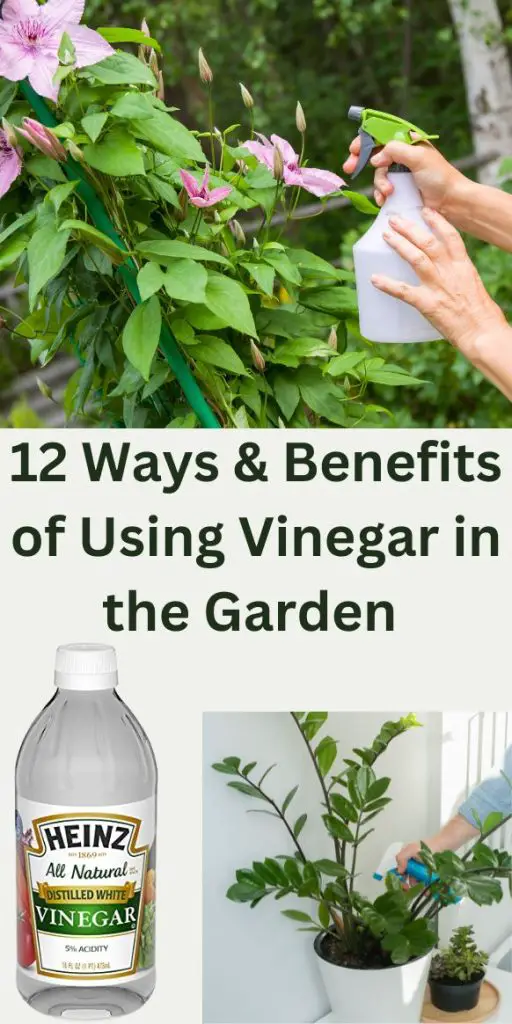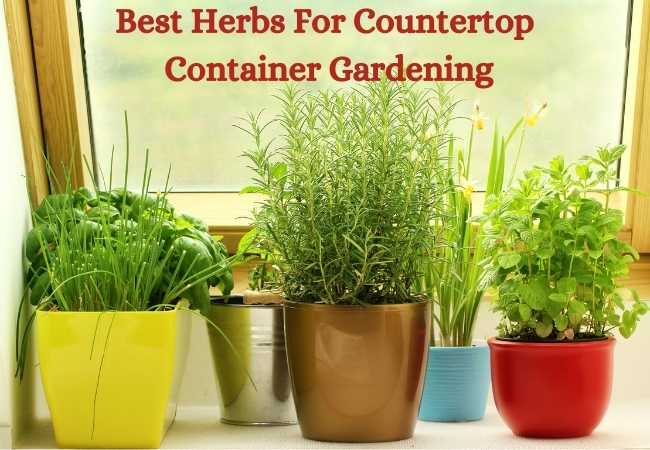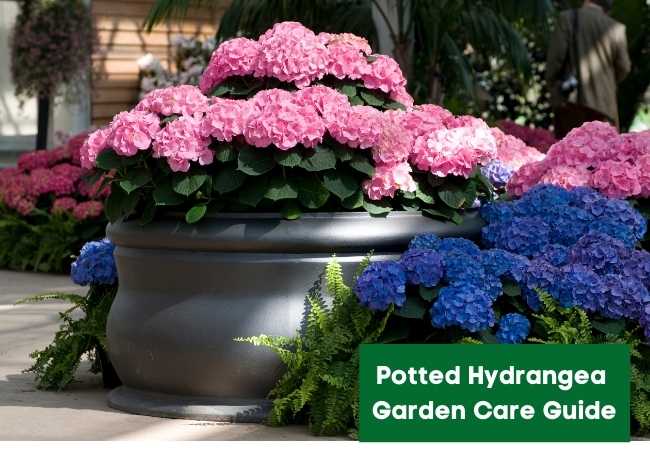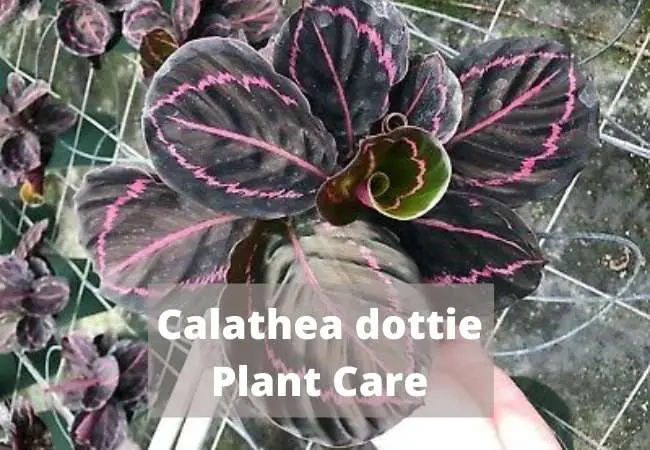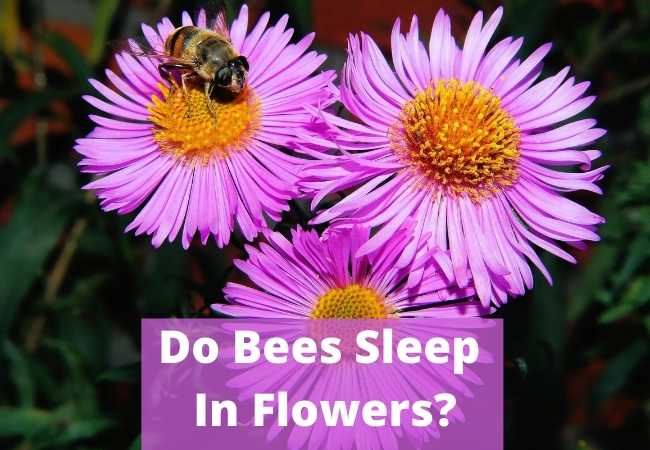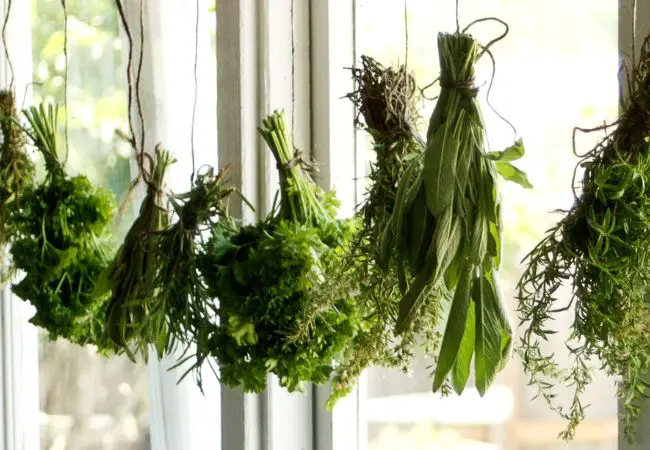12 Ways and Benefits of Using Vinegar Gardening
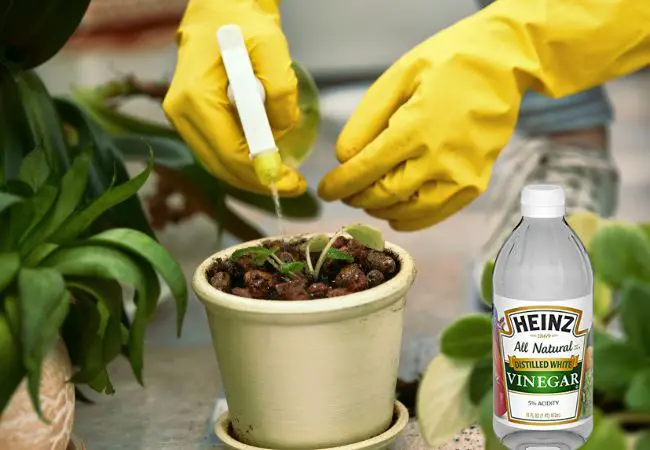
These are the best ways and benefits of using vinegar gardening that anyone can implement. I love gardening and have been growing different plants for many years. I am always interested in learning new things as well as experimenting.
Ways and Benefits of Using Vinegar Gardening
Whether you have a small balcony garden or a large backyard, it’s important to take care of your plants properly to ensure they thrive. One surprising ingredient that can help you do just that is vinegar.
While you may think of vinegar as just a cooking ingredient, it has many benefits when it comes to gardening. In this article, we’ll explore 12 ways and benefits of using vinegar gardening.
Vinegar as a Natural Weed Killer
Weeds are the bane of every gardener’s existence. They can quickly take over your garden and suffocate your plants. While there are many commercial weed killers on the market, some gardeners don’t want to use them.
They sometimes contain harmful chemicals that can harm the environment and your health. Fortunately, vinegar can be used as a natural weed killer. The acetic acid in vinegar breaks down the cell membranes of the plants, causing them to die.
How to use vinegar to kill weeds
To use vinegar as a weed killer, mix equal parts vinegar and water in a spray bottle. Spray the mixture directly on the weeds, being careful to avoid spraying your plants.
This mixture may not work on deep-rooted weeds, that have had sufficient time to establish their root system. For best results, use it on young unestablished weeds.
Vinegar For Soil Conditioning
The quality of your soil is crucial to the health of your plants. Soil that is too acidic or too alkaline can prevent your plants from absorbing the nutrients they need to grow.
Fortunately, vinegar can help balance the pH level of your soil. The acid in vinegar helps to break down minerals in the soil, making it easier for plants to absorb them.
How to Use Vinegar to Condition Soil
To use vinegar as a soil conditioner, mix one cup of vinegar with one gallon of water. Pour the mixture directly onto your soil, being careful not to saturate it. This will help to balance the pH level of your soil and improve the health of your plants.
Pest Control Using Vinegar
Pests can wreak havoc on any garden especially if you take too long to address the issue. From aphids to slugs, many pests can damage your plants.
While there are many commercial pest control products on the market, they can be expensive and harmful to the environment.
Vinegar can be used as a natural pest control agent. The strong scent of vinegar repels many pests, including ants, spiders, and fruit flies.
How to use vinegar to control garden pests
To use vinegar as a pest control agent, mix equal parts vinegar and water in a spray bottle. Spray the mixture directly on the pests or on areas where you’ve seen them. This will help to repel them and keep them from damaging your plants.
Vinegar as a Fertilizer Booster
Fertilizers are essential for the growth of healthy plants. However, sometimes your plants may not be getting all the nutrients they need from your fertilizer.
Vinegar can be used as a fertilizer booster to help your plants absorb more nutrients. The acid in vinegar helps to break down the nutrients in your fertilizer, making it easier for your plants to absorb them.
How to use vinegar as a fertilizer booster
To use vinegar as a fertilizer booster, mix one tablespoon of vinegar with one gallon of water. Water your plants with this mixture once a month to help them absorb more nutrients from your fertilizer.
Vinegar for pH Regulation
As we mentioned earlier, the pH level of your soil is crucial to the health of your plants. If your soil is too acidic or too alkaline, your plants may not be able to absorb the nutrients they need to grow.
Vinegar can be used as a pH regulator to balance the pH level of your soil. However, vinegar should be used cautiously and only after confirming that the soil requires it.
How to use vinegar to regulate soil pH
To use vinegar as a pH regulator, mix one cup of vinegar with one gallon of water. Pour the mixture onto your soil, being careful not to saturate it. This will help to balance the pH level of your soil and improve the health of your plants.
Vinegar for Seed Starting
Starting seeds can be a difficult and time-consuming process. Fortunately, vinegar can help make it easier
Vinegar can be used as a seed starter to help seeds germinate faster. The acetic acid in the vinegar helps to soften the seed coat, making it easier for the seed to sprout.
How to use vinegar to germinate seeds
To use vinegar as a seed starter, soak your seeds in a mixture of one part vinegar and three parts water for 24 hours before planting. This will help to soften the seed coat and improve the chances of successful germination.
Deterring Wild Animals
While vinegar can repel many pests, it can also be used as a deterrent for specific pests. For example, vinegar can be used to deter rabbits from eating your plants.
Simply soak cotton balls in vinegar and place them around your garden. The strong scent of vinegar will repel rabbits and keep them from damaging your plants.
However, this is not as effective because once the smell wears off, the animals can comfortably enter the garden.
Deterrent for Cats
Cats can be a nuisance in your garden, using it as their litter box as well as eating and destroying plants. Vinegar can be used as a deterrent for cats.
Simply soak rags in vinegar and place them around your garden. The strong scent of vinegar will repel cats and keep them from destroying your garden.
Clean Garden Tools
Keeping your garden tools clean is essential to prevent the spread of disease between plants. Vinegar can be used as a natural cleaner for your garden tools.
Simply mix equal parts vinegar and water and use the mixture to clean your tools. I have used vinegar for wiping knives in between cuts especially when propagating plants.
Clean Garden Pots
Dirty flower pots can harbor harmful bacteria that can infect your plants. Vinegar can be used as a natural cleaner for your flower pots.
Simply mix equal parts vinegar and water and use the mixture to clean your pots. I have effectively used vinegar to clean pots that contained diseased plants before repotting new plants in them.
Antifungal Agent
Fungal infections can quickly spread throughout your garden, damaging your plants. Vinegar can be used as an antifungal agent to help prevent and treat fungal infections.
The acid in vinegar helps to kill the fungus and prevent it from spreading. To use vinegar as an antifungal agent, mix one tablespoon of vinegar with one gallon of water.
Spray the mixture directly on the infected plants, being careful not to saturate them. Repeat this process every three days until the infection clears up.
Stain Remover
Gardening can be messy, and it’s not uncommon for soil and plant sap to stain your clothes and gloves. Vinegar can be used as a natural stain remover for your gardening clothes. Simply mix equal parts vinegar and water and use the mixture to remove the stains.
Final Thoughts on Using Vinegar
As you can see, vinegar has many benefits when it comes to gardening. From weed killer to fertilizer booster, vinegar can help you take care of your plants naturally and effectively.
I hope this post on the best ways and benefits of using vinegar gardening was helpful. Don’t forget to follow me on Multigadening Pinterest for more awesome gardening posts.
